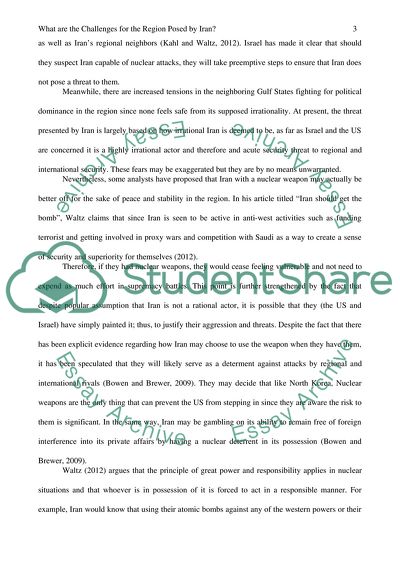Cite this document
(Iran Challenges for Regional International Relations Essay Example | Topics and Well Written Essays - 2000 words, n.d.)
Iran Challenges for Regional International Relations Essay Example | Topics and Well Written Essays - 2000 words. https://studentshare.org/politics/1837933-international-relations-iran-challenges
Iran Challenges for Regional International Relations Essay Example | Topics and Well Written Essays - 2000 words. https://studentshare.org/politics/1837933-international-relations-iran-challenges
(Iran Challenges for Regional International Relations Essay Example | Topics and Well Written Essays - 2000 Words)
Iran Challenges for Regional International Relations Essay Example | Topics and Well Written Essays - 2000 Words. https://studentshare.org/politics/1837933-international-relations-iran-challenges.
Iran Challenges for Regional International Relations Essay Example | Topics and Well Written Essays - 2000 Words. https://studentshare.org/politics/1837933-international-relations-iran-challenges.
“Iran Challenges for Regional International Relations Essay Example | Topics and Well Written Essays - 2000 Words”. https://studentshare.org/politics/1837933-international-relations-iran-challenges.


